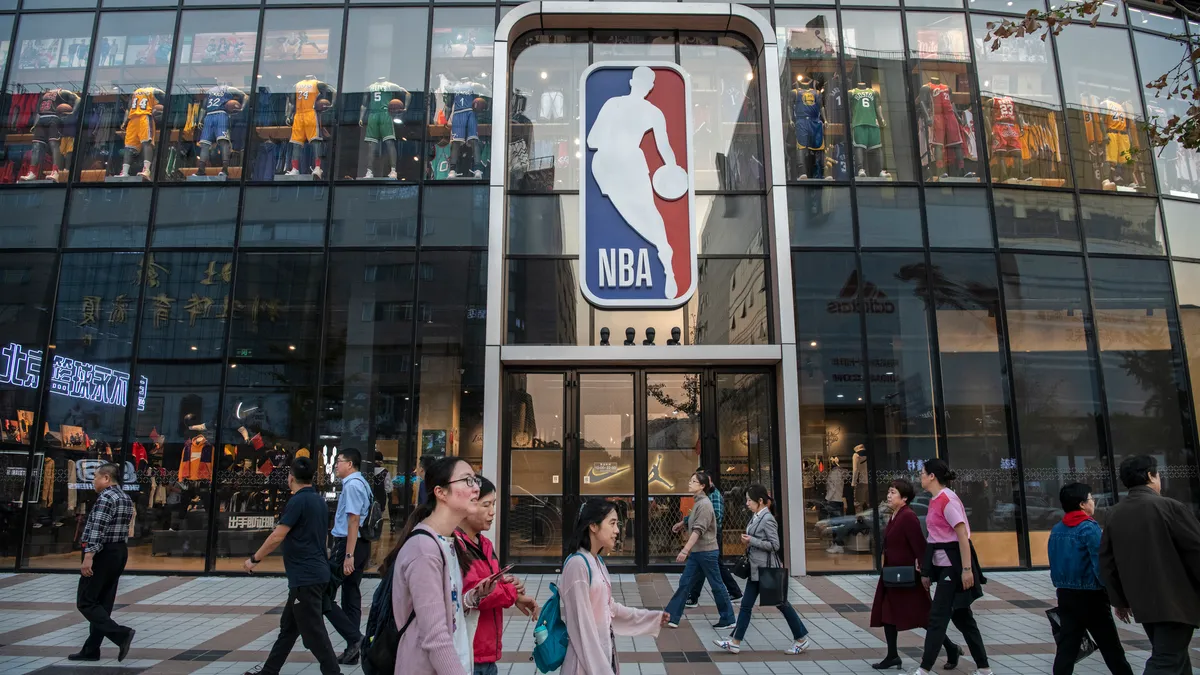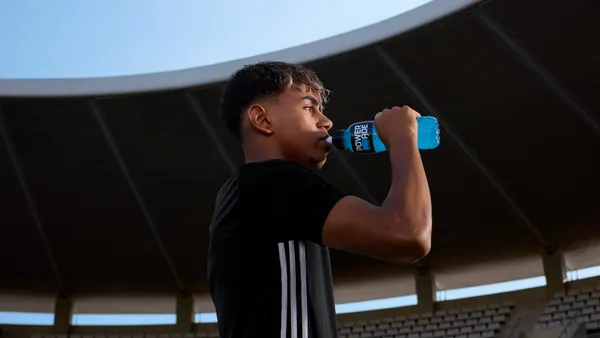Dive Brief:
- The NBA has entered into a multi-year, league-wide partnership with fan engagement platform StellarAlgo, according to a press release. The league’s investment arm has also taken an equity stake in the company, which was founded in 2016.
- The deal provides all 30 NBA teams with access to StellarAlgo’s platform, which provides a single view of consumer engagement across venues, e-commerce, social media, marketing and advertising channels.
- The move follows additional efforts by the NBA within the past year that have been focused on an expanded global footprint and more innovative marketing strategies, which come as the way fans consume sports content continues to pivot.
Dive Insight:
The NBA partnership with StellarAlgo comes as the league has been making aggressive moves to expand its global market. For example, the league’s marketing and production arm recently teamed up with Horizon Media’s sports business, making it the subdivision’s first partner, to strategize growth opportunities and even metaverse activations. The league also revamped its app last September, seemingly taking a page or two from TikTok in effort to more effectively share content.
Its latest move with StellarAlgo could better help the league identify and engage with new and existing consumers. The platform offers an aggregated view of a slew of consumer data both in and out of sporting venues, allowing the NBA to analyze trends among all 30 of its teams in one spot and nail down best practices. The deal builds on existing relationship StellarAlgo already has with four NBA teams: the Brooklyn Nets, Milwaukee Bucks, Portland Trail Blazers and Sacramento Kings.
“With over 200-million fans and 5-billion data points, our technology not only catalyzes organizational success but also makes it easier to be a fan,” said Vincent Ircandia, co-founder and CEO at StellarAlgo in a press statement.
The NBA’s equity investment in StellarAlgo underscores the growing important of leveraging first-party data across channels.
Such a push to reach consumers in less traditional methods follows suit to what other leagues are experiencing as the way fans consume sports content continues to pivot in favor of online experiences, making competition to maintain viewer attention even more fierce. As fans, particularly millennials and Gen Z, look to engage with sports on nonlinear platforms like social media and streaming, a complete view of their interactions could prove critical.















